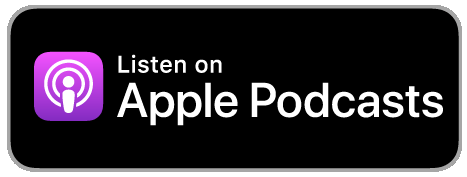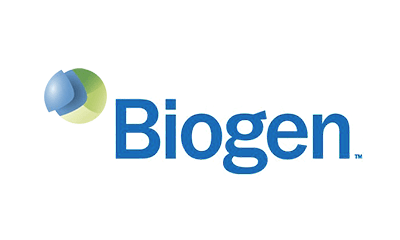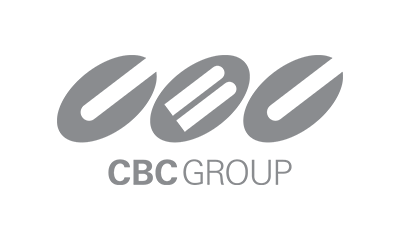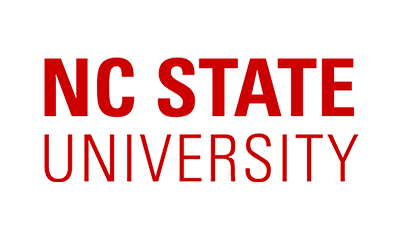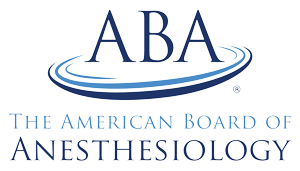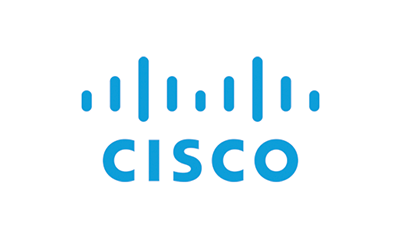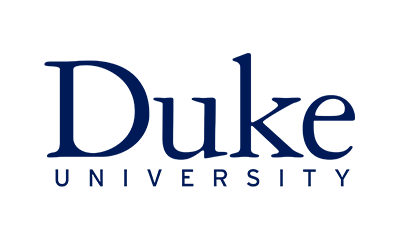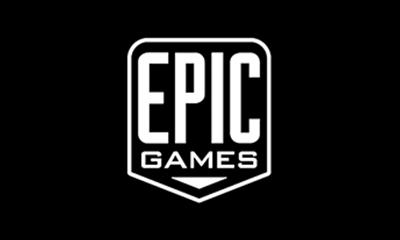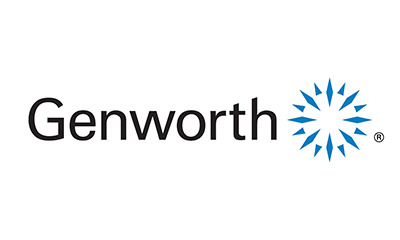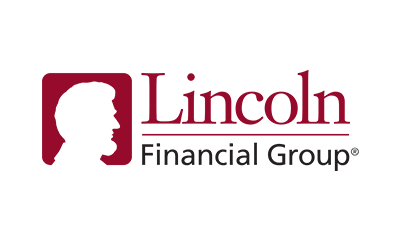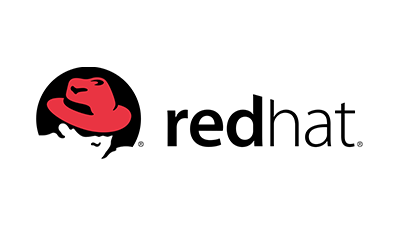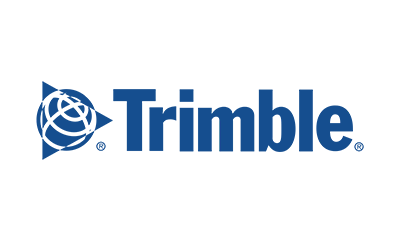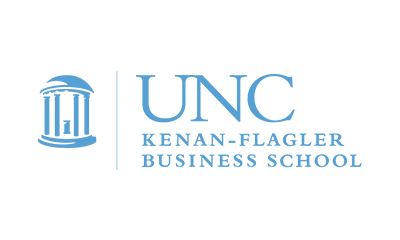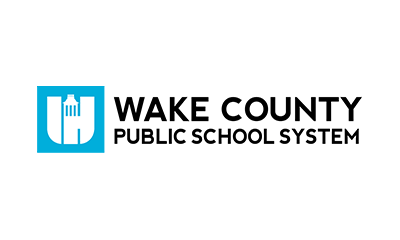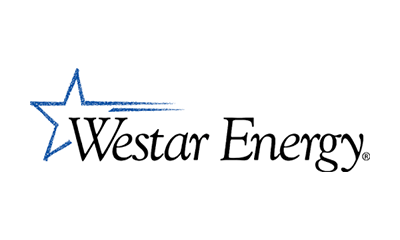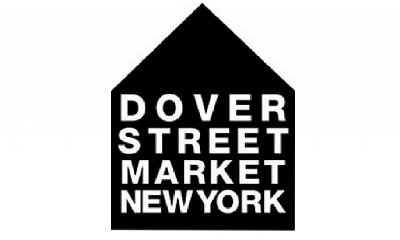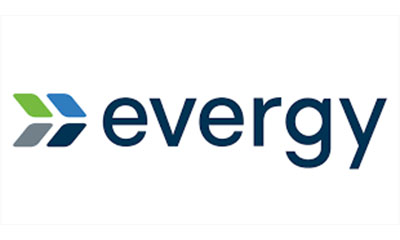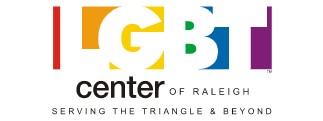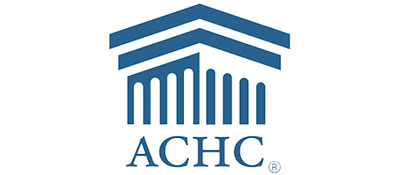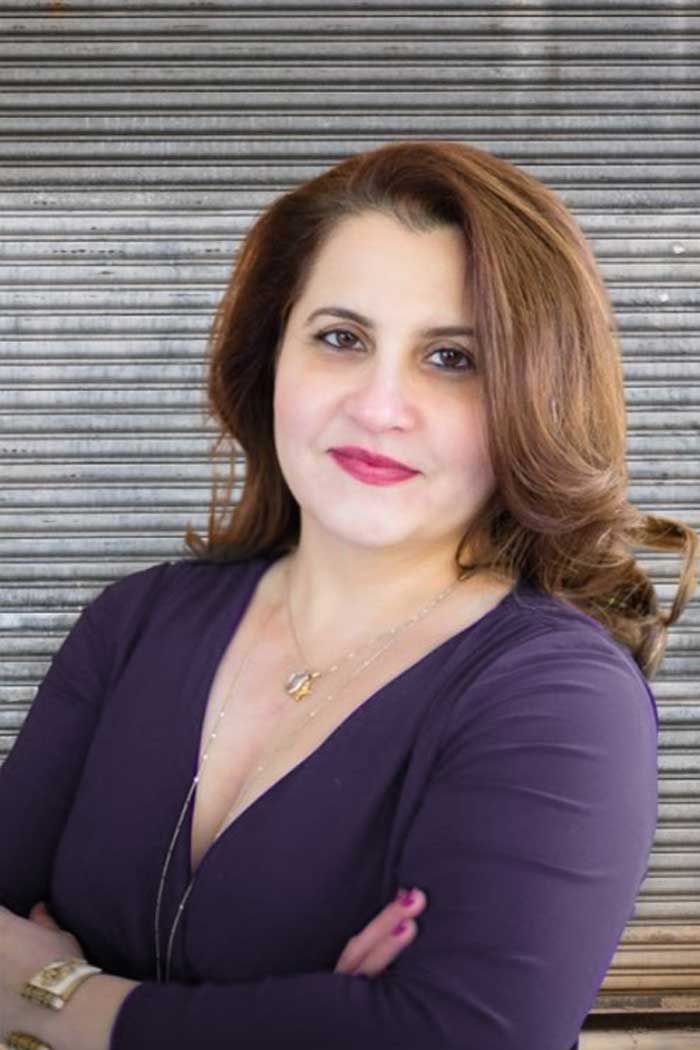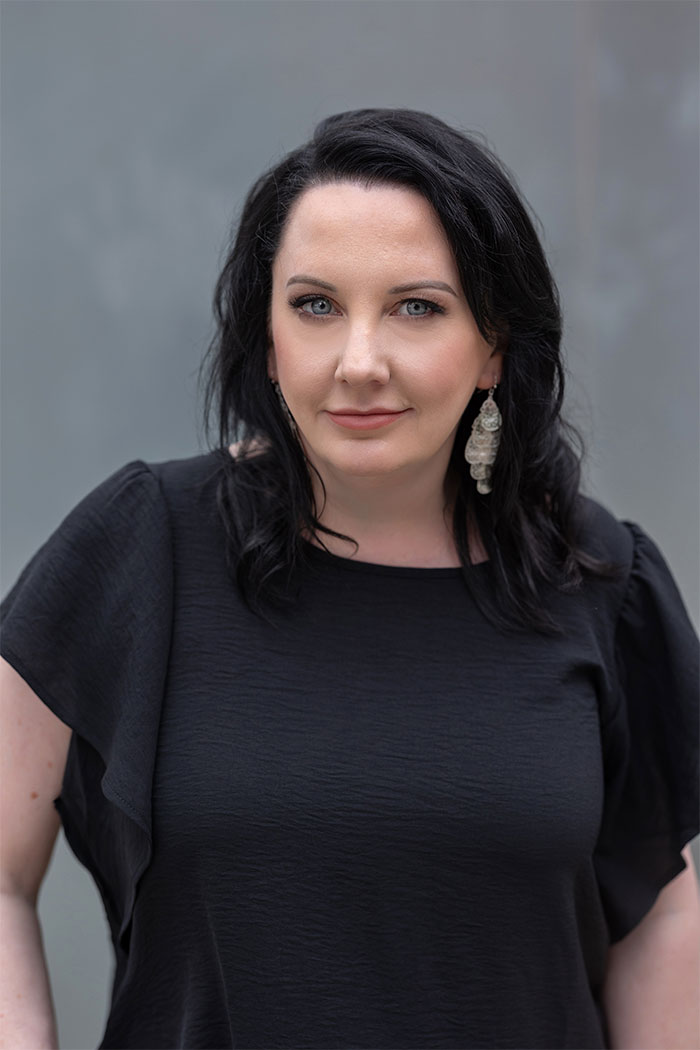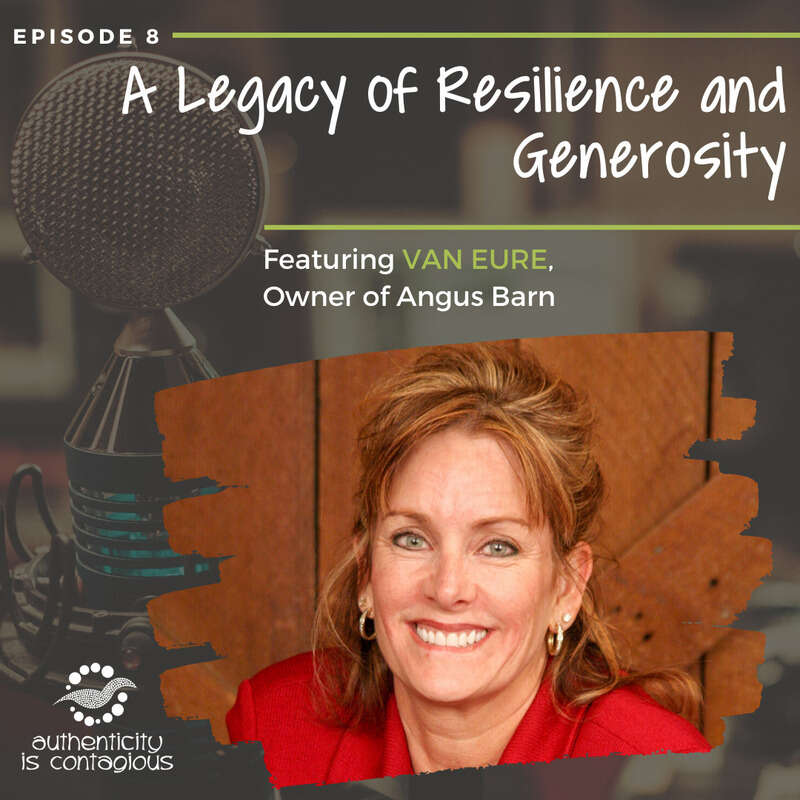
Episode 8
Angus Barn’s Van Eure: A Legacy of Resilience and Generosity
The recent shutdown of the Angus Barn due to COVID-19 was a shock to owner Van Eure and all of the Barn’s 368 employees. Find out how Van led through this unprecedented time, the positives that have come from the pandemic, and what her “Corona skill” is.
SHOW NOTES
Transcript
Kathleen O’Grady: Van I, when I found out that I was going to get to interview you, I was absolutely giddy, and I want you to know why. The reason is my mission in life is to foster authentic leadership and you are, and have been, a pioneer of authentic leadership since before it was a thing and before it was a term and before it was popular. And that’s a really big deal.
So I have so many questions prepared for you –
Van Eure: Yeah. OK.
Kathleen O’Grady: But I want to start out by saying that if I were to describe you in my own words, you’re kind of like the Santa Claus of the restaurant industry.
Van Eure: Oh my God.
Kathleen O’Grady: And when you’re at the restaurant and you get to see you walking around and greeting the guests, you actually feel like you’re in someone’s home.
And for whatever reason – I live four miles from here – every time I come to the Angus Barn, I feel like I’m on vacation.
Van Eure: That is just the way that I really want people to feel, so that’s cool that you said that because my goal is like that -life is full of so much stuff, you know, and especially now, but that from the minute people pull off 70 onto our driveway, from that second, that they should have like, however many hours they’re here, whether it’s two hours or four hours or whatever, that, that should be a complete like, relief from all the issues and problems that they’re dealing with, that we, we should be able to give them that gift, you know. And it’s a gift because, you know, it’s a gift of time that they don’t get to have in there without worrying about things. I mean, if they wanted to, they could go to the grocery store, get the groceries, cook the meal, you know, have everyone to their house, clean the table, but they chose to come here to let us do that for them. So, that’s a real compliment to us and we need to, you know, really take it seriously, like, you know, kind of like it’s therapy.
Kathleen O’Grady: Yeah, but it wasn’t always like that was it. It took a long way to get here.
Van Eure: Yes. Yes.
Kathleen O’Grady: And I know you’ve been interviewed so many times over the years and so I really just want to focus some of the questions today around what I see is aspects of your authentic leadership. One of the things that I know to be true as per the Santa Claus comment is that the way you operate in terms of your core values that I can see are integrity, generosity and an abundance mindset. And with a restaurant and being in the restaurant industry, you know, that, that margin can be really, really small and having such a large operation and multiple operations it’s counterintuitive in most cases to really be that generous and to really, put out of your pocket, just to make sure that you’ve satisfied your customer. And so when did you know that that’s how you wanted to lead?
Van Eure: Well, soon after my father passed away, I went to a leadership conference where Ken Blanchard spoke and I couldn’t get enough of what he was saying.
It was all about empowering your employees and giving them the gift of making decisions. So I started studying everything that he said. One thing he said was if you’re going to change your organization to be more focused on the employees being able to make decisions, you can’t just do it like boom because it’s like turning all triangle upside down and then all the pegs fall off.
You know, you have to kind of do it slowly so. Slowly, but surely we started doing all kinds of things like letting them be in charge of making their own schedules and figuring out how the side work should be and how the – now it’s gone to the point where when we get a new class of people that are working here, like every time we have a new group of like 30 people, which happens – They’ll meet with me personally for like a three hour class.
And I’ll go through what I call the 12 commandments of customer service. Well, during that class, I have this, this gift that I hand them and it’s wrapped really beautifully. It’s like a looks like, “Oh my God, what could be in this gift?” And they open it up and inside there’s a little card.
And that card says by being employed with Angus Barn, I now accept the responsibility that I will do whatever it takes to make a guest experience great, no matter what it takes. And so I said, you have this ability, you can do it. It doesn’t matter if you have to comp a meal, if you have to make someone a gift basket, if you have to, you know, whatever you have to do, you don’t have to earn this by years of being here.
Just the fact that you’re hired here now, you’re given this responsibility. So it’s really hard for a lot of them to accept that because they’ve never been at a place where they’ve been allowed to, you know, make decisions like that. But I look at each one of them in the eye and I say, “Do you really accept this responsibility?”
‘Cause it’s huge because let me give you an example. If you’re at a gas station and you’re filling your car with gas and someone sees you, you have Angus Barn logo on your shirt and they say, “Oh, God, last time I ate there, I had a bad experience.” You have to say, “Oh my gosh, let me get your, let me get your information. We’re going to make this right.” And if they don’t want to give you their information, guess what you have to do. You have to get their license plates because we’re going to find them and we’re going to make it right. So like, you are accepting the responsibility that, you know, you’re going to treat this, like, you’re the owner.
And so, by doing that, by treating the employees, well, I believe in that they are my customers. So if I treat them like, they’re my customers, then it is an example of how they should treat the customers. And all it really does is create loyalty and create people be able to just wanting to do as much as they can for the company.
And it’s so simple, but so many companies don’t realize it or get it that, you know, you don’t, you don’t have to rule, you know, like with a iron fist or like with this and this, and this is the way we’re going to do it. You just, you know, you just have to – like we call it the 20 foot rule. If we have a issue, we go to the people that are within 20 feet of the problem and we can bring them together and we say, “OK, let’s work on this. Let’s figure this out.” ‘Cause you know, usually if you’re the one that’s like in the trenches doing it, you’ve already sat there and figured out, “Well, if they did it this way or this or this way, it would work out better.” And so usually they’ve already got the answer. So we call that the 20 foot rule. So, anytime we’re like out in the office, trying to figure something out, we’re like 20 foot rule.
Let’s bring them in. So we bring in the people that are closest to the problem, then they help us figure it out. So it just causes employees – how you treat them as not even employees. I consider myself their employee. Because really, that’s what I am. I am a provider for their needs. Like if they come to me and say, “We can’t set the tables, cause we don’t have enough silverware.”
I mean, it’s my job to make sure that they get the tools, you know, that they need to do their job. So, you know, that’s basically what being a great owner is, I think, just being a great listener and being a great, you know, provider of people’s needs. I mean, can I do everything they need? No, but I always can listen.
So that’s really how the managers all operate under the same, you know, structure I think that’s the big culture change that we had here was when we started doing that. Now, when my dad ran it, it was a completely different time and they loved him. I mean, they adored my dad, but that was, you know, that was just a different time when, you know, he would just say, “This is how we’re going to do it. And dah, dah, dah,” you know, but if you were alive today, he would totally agree with the way that that I’m doing it. I’m sure.
Kathleen O’Grady: Yeah.
Van Eure: But I just believe if you take care of them, they’re going to take care of your guests.
Kathleen O’Grady: Yeah, there’s a book by Stephen Covey, Jr.
That is called Speed of Trust, and he gives the example of somebody on the streets in Manhattan selling like donuts and pastries and he would have a line. And so he couldn’t make change fast enough, so he would lose customers. So eventually he just put a bunch of cash and change in a basket and just said, please make your own change.
And then as a result, people appreciated being trusted to make their own change and he ended up getting more and more tips than he did beforehand. So I think that’s a lot like what you’re displaying.
Van Eure: Yeah.
Kathleen O’Grady: And I’m curious, cause I know you, the barn originally opened in 1960, it was burned down in ’64.
You took over in 1988. But before that. You created the Foundation of Hope?
Van Eure: Well, now I had worked, you know, I’ve worked here since I was like 12, because if you’re in a family that has a restaurant, you are going to work. I think the last show that we watched was the Addams Family because my sister and brother and I were sitting there watching TV on a Saturday afternoon in the summer, and my father came home.
We were all three sitting there watching TV and he goes, “Oh, no, no, no, this does not work for me. You’re going to work tomorrow.” And then, so that was it, I think that was the last like, show that I remember and seeing. And so people talk about, “Oh, you remember this show and that show I’m like, no, I don’t remember.”
But what happened with the Foundation of Hope was so my brother got really sick when he was 15 and my parents literally tried every hospital in the United States to try to figure out what was wrong. Everywhere they went, they were told we know nothing about what’s going on in his brain.
We don’t know this is one area of science that we have not ever had a lot of research done in. So we don’t know what to do with him. And so, as a result, of course, he was in a lot of different hospitals and it ended up he has chronic bipolar and schizophrenia. And then he’s been that way since he was that age.
So my father, you know, who isn’t used to, like not being able to make something out of something he said, “OK. OK. So I can’t make my own son well, so at least I can start a foundation to raise money for mental illness, so that maybe other families won’t have to, you know, go through what we’re going through and do something positive about this, you know, drastic situation that we’re in.
And so, you know, our lives pretty much changed, you know, when he got that sick, but it was just my father’s own private little foundation that he would put money in. He had a board of directors and they would decide which scientists to fund. And so then when my father passed away, the Angus Barn employees who loved him so much, they wanted to do something to raise money for his foundation.
So they started the walk. So that’s how it started. So it was really started by the employees when my father passed away, and we only thought there’d be one. Started with like 150 people, and then now there’s like 4,000 and it’s been going on for 31 years now. My sister runs it now, and we have funded some projects that have had incredible results.
Some research that one with, postpartum where a drug has been created for that. And it’s just, I mean, often in the research world, you don’t see the results of your work, you know, because it can be years and years and years, but we have seen some incredible results with some of the medications and some of the treatments that these unbelievable researchers come and present their studies to the group, and then they choose how much money they want to give them. And then the good thing is, is that’s seed money that then they can go and apply to the National Institute. And then, because we have believed in them with seed money, then more money can come in from the national.
So we have been able to really, make a big dent in, in the world of mental illness with everything, bipolar, schizophrenia, postpartum, PTSD, you know, anxiety disorders just, you know, everything.
Kathleen O’Grady: Well, the reason that’s so extraordinary is because, in most cases, when you don’t have a frame of reference for something, you know, at that time, as you mentioned, that mental illness, especially to that extent, was not something that you could just, recognize very easily, even within the medical field. And so now, I know you don’t have time to watch television, but there are actually more and more movies and shows on Netflix that are emphasizing and illustrating what people who have this in their families have to go through, as well as autism. So that’s how you take a victimizing situation and create something from it.
Van Eure: Right.
Kathleen O’Grady: That’s extraordinary.
Van Eure: And even my brother, when he was – well, he goes through periods of when he’s doing fine and when he’s not. But one – there was one year when he was doing really well. And my sister asked him, “Would you write something for us to read at one of our events?” And he wrote the most beautiful speech that – and I read it like from him – and it was like, you know, here’s how my life has been, but, if, because of this, we can make a change. We can find cures. We can help people that struggle with this, then it’s been worth it. You know? So, I mean, it was so beautifully worded. It was just like, you could hear a pin drop in the audience when I was reading it, you know?
‘Cause it was his words. But, you know, he’s not doing well he’s, every day is just – for someone that struggles that badly – every day is a challenge. I have to just say that, there’s a good thing that’s come from it. And my sister, she works so hard at the foundation.
She – every penny, I mean, my God, every penny is accounted for, she will make sure that every research dollar is, you know, everything is funded just right. Everything’s done just right. And she’s, she’s the perfect person to run it because I can’t really run that and run this. You know, but I am very involved in that of course.
Kathleen O’Grady: So speaking of someone like you, who takes care of everybody else for a living. How do you take care of Van? How do you practice self care?
Van Eure: Well, I have several strategies. The first thing is I do a little meditation time in the morning where I just close my eyes and then I do 10 minutes of just trying to do deep breathing.
And then I do 10 minutes of prayer where I’m praying for different things and people and situations. And then I do 10 minutes of what I’m grateful for, and it can be anything from, I can start with. I’m grateful that I live in a country where we’re free. I mean, I’m grateful for these people in my life, you know, so it can be whatever, but every day is different, but I do that, every day. And then, I have my rescue horses. That’s how I hurt my back. But, that is – so I rescue these horses that have been abused and I get them through organizations that, go to these sales and buy these horses that are getting ready to just kind of be, you know. That they don’t think can ever be anything, but they see something in these horses that they can maybe be something.
So they’ll buy them for like $50 or whatever. And then they’ll put them up on these sites and say wants them? And so if I have space at the time, then I’ll take one and I can have four at a time. That’s right there at my house. And so what gives me so much pleasure is I can watch these animals that are starved or that are scared to death of humans, or that can’t be touched. I can slowly watch them start to trust again and gain weight and like, one of them I’m even now just getting so I can touch his feet. You know, just to get to that point in that.
When I’m out there with the animals, when I’m in the pasture with the horses and doing my stuff with them, I don’t have my phone with me. I am so, focused on that. So, you know, I have that, and that usually takes, you know, a hour to two hours of my day. And then I started – so with the corona thing, I said, “OK, everybody needs to have a Corona skill that they learned that they would never have learned if they didn’t have this time, the time that we would never have again.
So I had played piano when I was young, but never, you know, really picked it up again. So I got this book, Queen. And I learned I’m learning to play. My corona skill was, Somebody to Love and Bohemian Rhapsody. So, my corona skill – and I can’t really do it when anyone’s in the house because like, they’re like, “Oh my God, there she goes again on,” you know, because when you’re learning a song, you, you mess up, you play it over and over and over and over.
And so, you know, but that’s been like my saving grace. So I have those, those three things that, that I do. Well, the meditation I’ve been doing for a long time, and the animal rescue I’ve been doing that for a long time. But, I think that’s really what saved me because sometimes I laugh at myself when I’m out in the pasture and my hair is like up in this light thing that looks like pebbles and I am dripping sweat.
And I’m trying to lift these – these are draft horses – and I’m trying to lift their feet and I’m laughing to myself. I’m thinking, “Oh my God.” And I’m, and I’m, you know, like scooping poop and all this – and I think, “Oh my God, if they could see me right now, they would just die laughing because they wouldn’t believe,” you know, but it is such therapy for me.
And usually I don’t hurt myself, usually. This just happened ’cause I unloaded too many bags of grain at one time.
Kathleen O’Grady: And that’s just yet another example of how you persevere and how generous you are because we could have rescheduled and here you are.
Van Eure: Oh no, no, no. I was going to crawl to the – crawl to the interview, if I had to. No, but that’s my, that’s the, that’s how I stay sane.
That’s how I, that’s how I can do it. That’s my rejuvenation. That’s great. And then when I come in here, I’m like, you know, a new person.
Kathleen O’Grady: You mentioned the coronavirus, which was of course going to be one of my questions. Talk to me about the day that you found out that you were going to have to close down.
Van Eure: It was a shock. I mean, I had no idea that, I mean, I heard some of this going on and I was just kinda like, well, you know, it can’t be that serious. I mean, I lived in Africa for five years and I was exposed to everything in the world. And I thought, well, this can’t be that serious. So, but we did start doing a few things.
Like we had someone serving the cheese and crackers and relishes instead of the customers just getting it on their own. And we started wiping down all the handrails and that was just like two days of that. And then all of a sudden, boom, you’re closed and it was a real, it was a shock. So, so the first thing was, I said, “Oh my God, these employees that live, you know, paycheck to paycheck.” and my husband happens to be president of the restaurant association this year, the North Carolina. So he and Lynn Menges the chairman of the association. They set up this immediate restaurant worker relief fund, where it’s called 500 in five days where you could apply it in five days, you could get $500.
Like if you, you know, we’re so worried about how am I gonna feed my children? How am I gonna pay my rent? Like it, all it had to do is just. You filled out application, it went to the HR manager or the manager of the restaurant. They said, yes, this person works here and you got the $500. It was very fast.
They raised over a million dollars from our vendors, like our, all of our like, spirits vendors and wine vendors and food vendors. And, I mean, we were, you know, I don’t like to ask for money, but I was calling saying, “Listen, I don’t like to ask for money, but you need to give us a check. I mean, I mean, this is urgent.”
And then, my next thing was trying to get the PPP, the, you know, the loan that was so – I was so worried about that, but until that happened, we were, you know, we called every single employee – 368. We called every single one and had talks with them and said, “OK, don’t worry. You know, If you need money, we’ll loan you money, your job’s going to be safe.
You know, don’t worry.” So we did, we did some loans, before the money came in and then when the money came in, then I could finally sleep at night and we were able to pay them. So then we said, well, anyone who wants to come out and help us, we decided to do some renovations that we really could never have done if we hadn’t been closed. I’m talking major things like, like under our bar floor, there was these cast iron pipes that were leaking for 20 years down into the little barn dining room. And when we pulled up that floor and changed those pipes to PVC pipes, you would have thought that I saw Santa Claus.
I mean, and no one even, no one even knows that – no one even can see the results of that. But that was like one of the happiest days for me. But all these employees, like, so we sent out this thing and we said, even though you’re being paid, if you want to come in and just help us with projects, you know, and you feel safe doing it, you know, please just let us know.
And like a hundred of them signed up. They wanted to come in and help and they scrubbed on their hands and knees. I mean, they worked so hard. And so then we started doing to-go right away. We’ve never done to-go. We had no idea what we were doing. We had, we did not even understand to-go, but we got it down.
And my best compliment was well, Easter. We had so many orders, like 700 orders. And I was the one that would write down what car it was and what the name was and where they were parked while we were waiting for their order to come out of the kitchen.
Then when it would come out, I would send them to that car. And then this one guy drove by me and he said, “Ma’am, y’all must have studied Chick-fil-A cause y’all have got this down.” And I was like, “Oh my God is the best complement I’d ever had to be compared to Chick-fil-As, you know, the way they can organize their to go.
So that was, that was so great. So then, then what we started doing was any, any tips that we got – which the customers were so generous. I mean, just saying, you know, “We want to help, we want to help.” They were divided amongst all the staff that had come in that day. And so that was, that was just a real blessing.
And just to see them. I mean, these employees just dripping sweat, even though they’re being paid, they could sit at home, but they wanted to come in and do stuff for us. So we did so many things that we could have never have done if the restaurant was, was open. So that, in that way it was good.
Kathleen O’Grady: Yeah.
Van Eure: And then in several other ways, we kept up with the employees, like all the time through, this group chat thing that we have. And we, we did videos of, you know, some of the improvements we were making and we – kind of to keep them engaged – and then, but we – some of them that were struggling, Like, I personally went to one of them’s house and said, we’re going on a walk. We’re going, you and I are walking, come on, we’re walking. And because, you know, I thought he was gonna really have a meltdown bad and he needed just to walk and talk. And so, I said to every manager “You are to check in and not just by email and not by text and not – you are to verbally talk to that person and find out how they really are.
And if they’re really not doing well, you need to let me know, and we’re going to do something about it. So we really took care of probably about 10 people that were struggling hard. And then they’re all doing fine now. But, that was my main thing was making sure they were all. Okay.
Kathleen O’Grady: So now that the phases has allowed to reopen, I told my mom who I’ve taken here a few times. She lives in Chapel Hill, but whenever we need a mom-daughter outing, we usually come here cause it’s so close to my house. And I said, I’m interviewing Van Eure, the owner of Angus Barn, today, what question do you want me to ask her for you? And she’s like, “Ask her how, you know, for, for people who are at risk, like, like her and my father.”
Van Eure: Yes.
Kathleen O’Grady: What are some of the precautions that you’re taking to ensure the safety of people who actually want to venture out?
Van Eure: Right. Well, we, we built these partitions that are plexiglass glass partitions, that our own carpenters built that we can put, you know, on either side of tables, we built like 30 of them and we have all the tables are spaced apart.
All of our front of the house staff wear, wear masks. They can take it off when they’re in the kitchen, but when they’re out in the front, they wear masks. We have a hand sanitizing stations everywhere. We make sure that we don’t allow people to congregate if we don’t – our bar and our saloon area are not for congregating they’re for dining.
They, people can sit and dine there and we have it set up that if people want to have a drink, while they’re waiting, they can get a drink from an outside bar and then go and wait by their car, you know? And, in everything that we have done as far as even how we serve our water and how we serve the cheese and crackers and everything is, is totally different than how we do it.
We don’t hand out our leather menus. We hand out paper menus, they get thrown away every time, you know, because we don’t have, we can’t, we don’t clean every page of the menu. And the wine list. We, we just give them an app. They can go to on their phone if they want it, but if they want someone to come to their table and somebody can come and go over the wine list with them, but we don’t hand out a wine list to every table.
We’re not used to not boxing up someone’s food for them, but we have to give the customer there to-go box and let them box it up. But, you know, it sometimes it’s just like, hurts me to do that. I’m like, “Oh my God.” You know, because anything that’s considered work, the customer is not supposed to do, you know, we’re supposed to do. But anything that could be at all dangerous where there’s any kind of touching involved, we minimize that.
And so I think that we probably are as safe as it can get right now. I mean, with, with everything that we’ve, we’ve done, I mean, and then plus a lot of employees and customers have mentioned some things that we changed immediately, you know, like, like blowing out your candles on a cake. I mean, think about that.
We’ve been doing that for years, you know? And so what we do is we, we have a slice of cake that we bring with candles for the person, and then we have another cake that we’re going to now divide up for the table. So they get to still blow out their candles, but they don’t blow on the whole cake. But think about that.
We’ve been, we’ve been blowing out candles on cakes for all our lives and, and seven year olds, like spitting on cakes and all this we never, we never thought about it, right? But, but now we’ve come up with a way to do that. And so, things are different our employees totally adapted to everything and they, you know, the guests all understand. Your mother would feel very safe. We have outside check-in where we check you in before you even come into the restaurant and then we escort you to your dining room. And so it’s not, there’s no, there’s no, not even any lines or anything anywhere so.
Kathleen O’Grady: So are you going to keep the to-go process now that you’ve mastered it?
Van Eure: Well, I think so because there’s still a lot of people that are uncomfortable coming out and believe it or not, it’s really done well for us.
Because when we tried it before, if someone complained, “My steak wasn’t cooked right, then we would have – we would deliver another steak to their house because like, I can’t stand for it not to be right.” And so we’re thinking, “Oh Lord, here we go.”
But people have really loved it. We keep the menu very simple and streamlined so that it’s something that we can deal with. But the other thing that we’re doing that’s really great is that we, serve frozen cryovaced, burgers, filets and rib-eyes and, Shepherd’s pie and things like that, that people have loved because then they can go home and cook it on their own grills.
Kathleen O’Grady: And then that’s fresh when they want to plate it.
That’s great.
Van Eure: And I think that that will always, I think, we’ll always continue to do that. And we never would have come up with that if this hadn’t happened. So
Kathleen O’Grady: Well, you’ve been so generous with your time. I have one more kind of like serious question and then I have some guilty pleasure questions if that’s OK.
I know that, that we all see your legacy as we see it, but how do you want your legacy to be seen?
Van Eure: You mean, like, how do I want to –
Kathleen O’Grady: be remembered.
Van Eure: Just as somebody that tried to make a difference by how I chose to live my life and treat people. So people may say, “Well, what is it? What is it that you do that’s different?” And then, then I can, you know, affect them and then maybe cause them to be that way. And, you know, I realize that, you know, I, I have 368 people whose livelihoods depend on this place. And so anything that I teach them, then they believe in. Like recycling or like, you know, how to respect others nationalities and other, you know, religions then that transfers then to their children. And then, so, so it goes much beyond just running a restaurant. It’s really teaching people, you know, values like, “No, no, no. This is how we handle someone when they’re upset.” You know, “This is how we, you know, work through our problems.” That’s how I want to be remembered is just that, I tried to live my life as an example of how I would like to see other people treat each other. And you know, I’m not perfect. Listen, I make mistakes every day, but that’s another thing is I believe in admitting your mistakes, just saying I made a mistake
Kathleen O’Grady: Well, let me tell you something, Van. Let me tell you, because you know, Raleigh is a very big small town and people talk. And I have never once heard anyone utter a cross word about you.
Van Eure: Well, you know, the ones that don’t like me, they’re in the Lake.
They just ended up in there, you know, just like. No, but you know, you know, I think, I think it’s really important to be able to say “I made a mistake,” and to be okay with that. And “let me tell you how I’m going to fix it. I made a mistake, I’m going to fix it.” So I think that’s important. A lot of people forget how to do that when they get to be an adult.
And I remember watching my father do it one time and I was so like, amazed. He stood in front of the whole group and then after he was gone, one of the employees said to me, “You know that time your father stood up in front of all of us and said ‘I was really wrong and I’m sorry, and here’s what I’m going to do?'”
Well, what did he, what did he do? That was so wrong? Can’t remember. All I remember is that, that day, my respect for him went like from here to here, you know, but no one remembered what he was even apologizing for. They just remember thinking, “Wow.” You know, I just realized that we’re all human.
We have to say – when we’re wrong, we just say we’re wrong.
Kathleen O’Grady: Yeah. The world needs more humility.
Van Eure: Yeah. And I feel like the coronavirus was meant to happen. I mean, I feel like we were meant to be humbled a little bit and to realize, “Oh, we do have a lot to be grateful for. And our family time is important.
And our, you know, there’s precious things that go beyond work and money and all of that, you know, there’s, there’s other things and family meals,” and just, you know, so, I mean, I think, I think it was really a good thing. I think it was planned by God.
I couldn’t agree more. I feel like it’s a, a consciousness raising event that, was overdue and then there have been more consciousness raising events since that we’re in the midst of, and so I applaud you for leading in the way that other people are starting to lead now, from the very beginning. And so my, my guilty pleasure questions are – the thing outside that looks like a water tank, what what’s in there?
Well, that, that was a water tank.
Kathleen O’Grady: It was. OK.
Van Eure: So we used to be on well water, and that held all of our water.
We had two of them, one was the water for the restaurant and the other was the water for if we had a fire. So now, we still keep that filled with water because the only way it will stay is if you keep it filled and you have to get it once every six years, so we just want to keep that, we want to keep that going ’cause it’s, you know, just part of the Angus Barn. So it is a water tower.
Kathleen O’Grady: Wow. And then who would you say are your most memorable kind of notoriety guests that have come through over the years?
Van Eure: Well, Tom Selleck was probably the, one of the kindest men I’ve ever met. He was just kind, and he wasn’t, full of himself or, you know, it was just like normal person. He came like every night for seven nights while he was doing a play in Durham.
And so he was just extremely nice. And I just admire that so much about him. And, you know, we’ve had, we’ve had so many people that have like, gotten so emotional about the Angus Barn that, you know, they’ll come here and they’ll say, “My father has requested to come here because he’s really not going to make it too much longer, but this is going to be like our last family meal together.”
That was is such a, such a compliment to us that that’s where the family wanted to have their last meal together. And then we named we, we named the stall where they sat after their family, and then that, you know, they come back for his birthday and for all the diff – we have that in about 10 places all over the restaurant where people have come. And then they’ve also written letters saying “We didn’t know it, but that was our last time as a family. We didn’t re – you know, but that did happen to be,” then I got a letter one time years ago that was, that said that her marriage was on the brink and they had decided that, you know, they were going to work out all the details of how the divorce was going to go, and they came here for dinner and, certain things happened during the dinner that were so nice for them, that they, instead of working out at a divorce that they’ve really rekindled their relationship. And she wrote me all about this and she said, “I owe my marriage, the way my marriage has worked out now, to the Angus Barn because we walked in and we felt so welcomed and warm and like, we got treated so nicely. And then we couldn’t talk about anything bad. We were just talking about like, well, maybe we should really make this work.” And so, you know, I got that letter and that was just like blew me away. It’s really, you know, things like that, that means so much. And then, people just get emotional, you know, that. Like one, man just walked in the other night and he started crying. He said, “Oh my God, I should have told you, my wife passed away.” And his wife, you know, I had a good relationship with her and I said that, “You know, you didn’t have to tell me. That’s OK.”
You know, just, he said, “But she loved this place and she loved you. And this is you know, this is happiness for her. You know, being here is just happiness for her.” So they had come to celebrate her birthday here, just like, three nights ago. And then he sent me a picture of – and she had lost her ability to really speak.
She had had a stroke and she couldn’t really speak well, but somehow I could understand her really well. So she and I would have all these conversations a lot when she would come out to dinner and sometimes I didn’t really understand, but I just said, “yes, I agree,” and I would just go, you know, but most of the time I understood what she was saying.
So we had a really good relationship and it’s just things like that, that you realize it goes so, so much further beyond the meal. The meal is just the thing. But the real thing is the feeling that you create.
Kathleen O’Grady: It’s the energy of the space, which is full of love and generosity and creativity. And that’s kind of a good segway to my final question, which you might’ve already answered. All of the names in the Turkey lounge.
How do they get placed there?
Van Eure: Well, it started with somebody that had come there a lot. And he said, “You know, I need my name up on this bar.” And so we said, “OK.” ‘Cause you know, the, the – if it’s not illegal, immoral or unethical the answer’s yes, that’s our standard. And so, so that wasn’t illegal, immoral, unethical.
So we put his name up there. Then, then then the next person said, “Well, you know, how can I get my name up there?” So, all of our regulars started asking for their name plates to be up there and then some would make it funny, cute little names, like. And then, then it really got out of control. And so then the employees would come to me, “Van, do we have any, like, do they have to eat here a certain amount of time to get their name or what?”
I said “No. If someone brings it up, just, just write down their name and we’ll make a plaque and we’ll find a place for it because what, what am I going to say? If you eat here 10 times you get your name up there? Whatever, you know, so all you really have to do is ask, but a lot of people don’t ask, but a lot do.
And so what it really creates is that they come back because their name is there on this little brass plaque that cost us maybe $10, whatever.
Kathleen O’Grady: So my name is Kathleen O’Grady.
Van Eure: How do you want it? You tell me how you want it and –
Kathleen O’Grady: OK. It’s been a bucket list item for me.
Van Eure: Oh my gosh. Yeah, it will happen. It will happen.
You gotta write it down exactly what you want it to say. Yeah, so it just started got, he got out of control, but then didn’t matter. You know, one time we took some of the names – we ran it, we were running out of space and we took some of the names down. We thought, well, they’re never coming back, but I’ll be darned those – the very next month, like half of those people came back and I’m like, “Get all those plaques out of that box and put them all back up.” Because I’m going like, “Oh, they must have fallen down. Oh my God.” You know, like, and I’m thinking ‘this is horrible.’ So don’t ever take the nameplate down because as soon as you take, as soon as I tell you that, even if they haven’t been, even if they moved to another country, then they come back to Raleigh and then they want to see their name again. And we learned our lesson.
We’re like, no don’t ever take one down. You know? So that was, that was crazy. But you will have your name up there.
Kathleen O’Grady: Oh God bless you.
Van, thank you from the bottom of my heart for having me and for being here, during this difficult time and with a pulled back, you’re just, you’re just remarkable.
Van Eure: Well, listen, I want to thank you for asking me to do this because that was the real compliment to me that you, you wanted to interview me. And, Yeah, I don’t have, I don’t have all the answers either. I’m learning every day. I learn every single day something new about, you know, “Oh God, should’ve thought of that, that a long time ago,” you know? But.
Kathleen O’Grady: Well, you are an icon in this community and –
Van Eure: I didn’t, I don’t think of myself or realize that, that, I mean, I thank you for saying that.
Kathleen O’Grady: And that’s what makes you an icon is that you don’t want to be seen that way necessarily. You just show up as you.
Van Eure: Thank you. Thank you. You’re going to make me cry.
Kathleen O’Grady: That’s my job.
